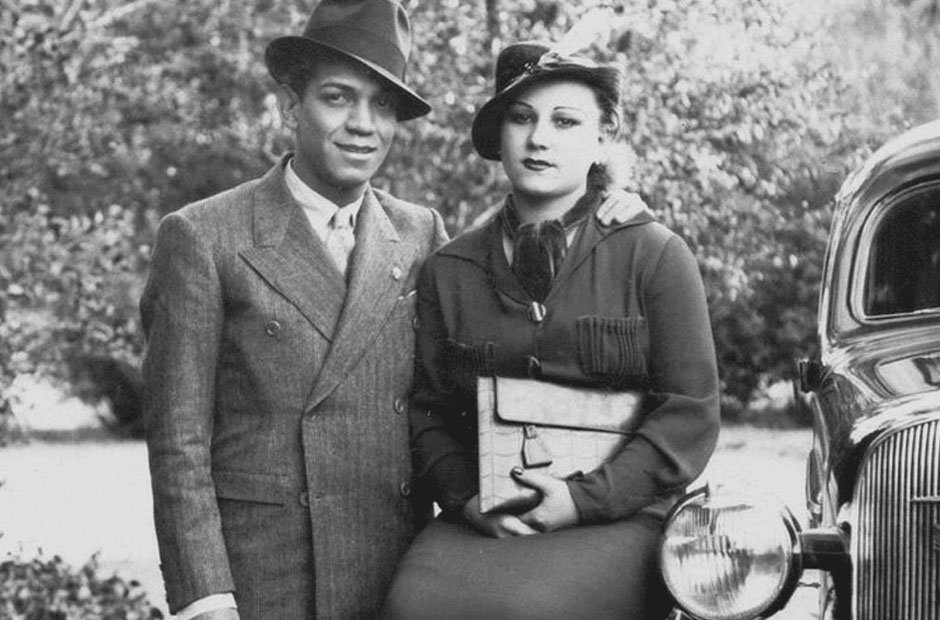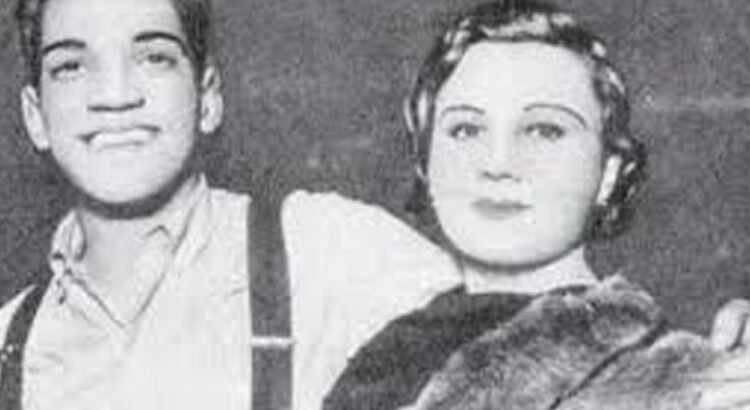Russian-born Valentina Ivanova Zuvareff, known as Valentina Zubareff, was a mid-20th century dancer in Mexican entertainment.
Early Life and Family
Valentina Ivanova Zuvareff was born on 27 October 1915, in Moscow, Russia. Her family fled to Mexico after the Russian Civil War and her parents Anita Ivanoff and Iván Zúbarev escaped there. There they started a traveling theater company – Carpa Valentina.
Rise to Stardom with Trio Zubareff
Her talent developed within the family business. Together with her sisters Olga and Tamara they formed the “Trio Zubareff,” the main attraction of the Carpa Valentina shows. Their dancing routines entertained audiences throughout Mexico.
Love and Marriage with Cantinflas
A young Mario Moreno Reyes, the comic Cantinflas, joined the Carpa Valentina in 1929. They crossed paths professionally and romantically too. Valentina and Cantinflas eventually got married in 1934.
A Life Cut Short

Valentina died tragically despite a great career and personal happiness. She died in 1966 at age 50, probably from bone cancer. Her family and the Mexican entertainment industry were seriously affected by her passing.
Valentina’s Legacy
Valentina Ivanova Zuvareff remains a figure in Mexican cultural history. Her talent and stage presence with the Trio Zubareff helped the Carpa Valentina succeed. Moreover, her marriage to Cantinflas anchored her in comedy history. Little is known of her private life outside of her career but Valentina’s story is a reminder of the power of artistic expression and mid-20th-century Mexican entertainment.
Her Husband, Cantinflas
Cantinflas, born Mario Moreno Reyes in 1911, was more than a comedian. A cultural icon in Mexico and beyond. His signature character was a disheveled underdog with witty jabs – which audiences embraced for decades.
Cantinflas’ early life and education are sketchy. Born in Mexico City, he probably left school young to pursue performance. It began with travelling tent shows. He got gigs at prestigious venues like the Folies Theatre in Mexico City.
Cantinflas developed his character in the 1930s. In baggy pants, a floppy hat and a perpetually knotted scarf he represented the struggles of the “pelado,” or Mexican working class. His comedic weapon was his mumbled speech – a burst of nonsensical pronouncements (“cantinflear” in Spanish). He gave slapstick social commentary on authority figures.
Cantinflas’ films often featured him as a poor underdog who outsmarts the rich or corrupt, and became huge successes throughout Latin America. His 1940 movie “Ahi esta el detalle!” (There’s the Point!) made him an international sensation. Hollywood noticed, and his 1956 role alongside David Niven in “Around the world in 80 Days” made him the world’s highest paid actor that year.
Cantinflas married Amelia Wilhelmy in 1934 and had one son – Mario Arturo Moreno Reina. His film career and endorsements netted him a fortune. He was devoted to his comedic persona – the champion of the common man – despite his wealth.
In 1993, Cantinflas passed away while leaving behind a legacy of laughter and social commentary. He still inspires comics and artists today and is one of the most beloved figures in Mexican and world entertainment history.
